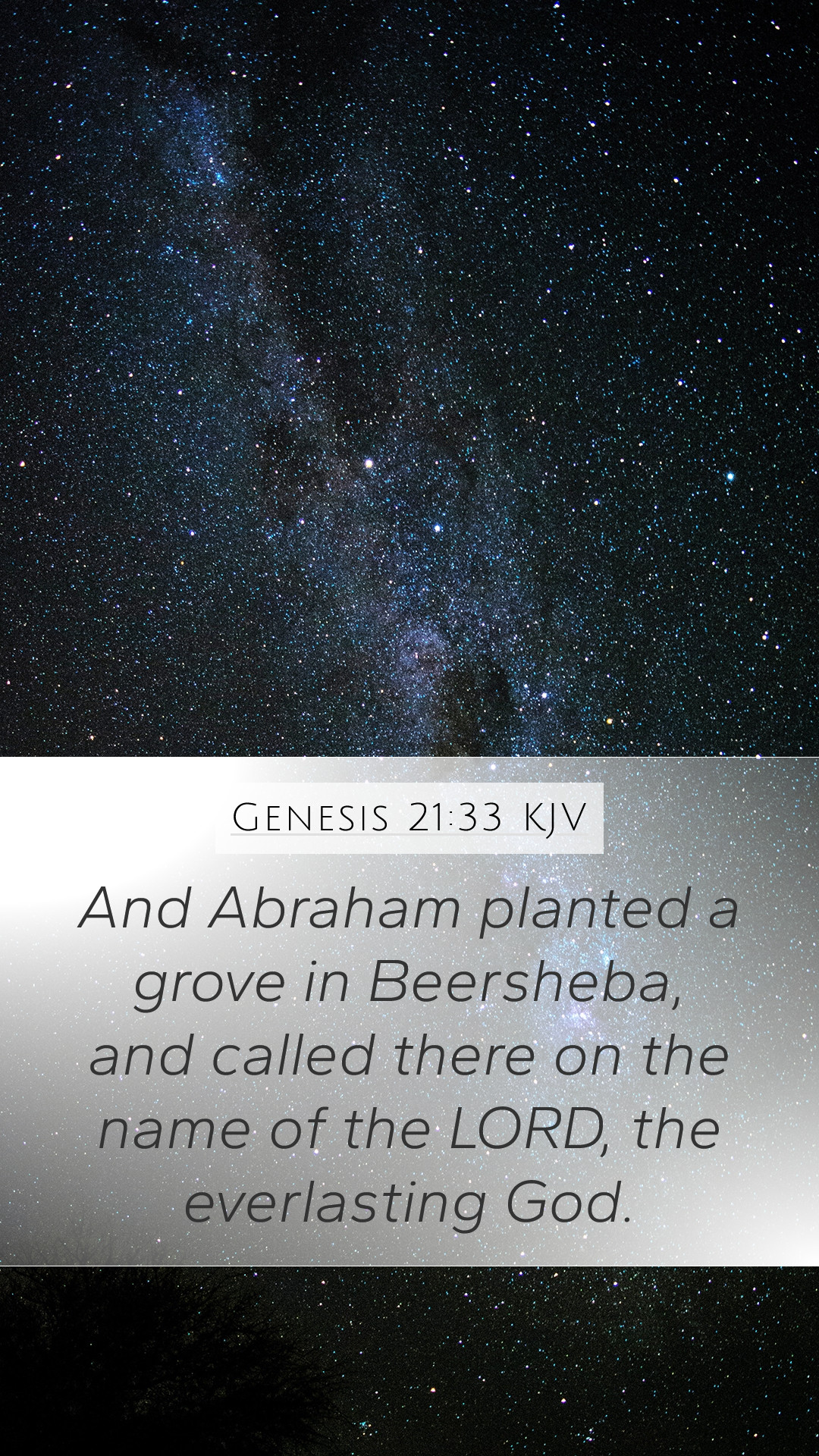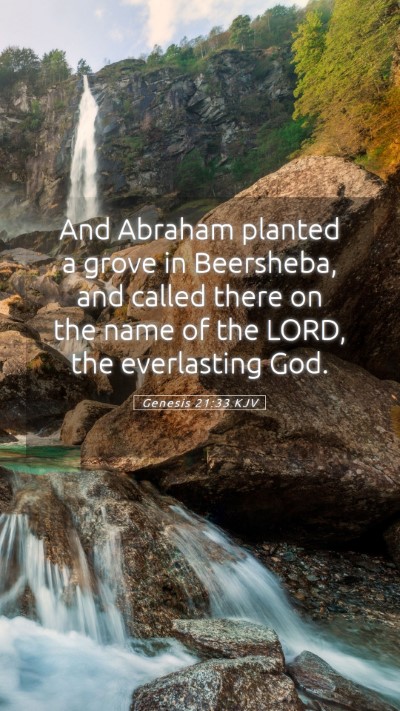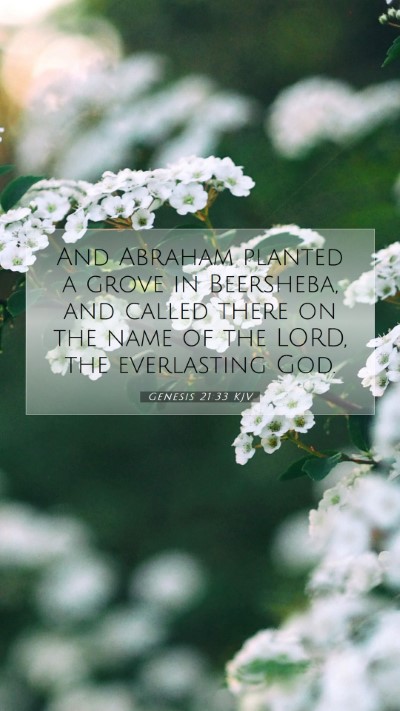Understanding Genesis 21:33 - Bible Verse Commentary
This section delves into the meaning of Genesis 21:33, which reads: "And Abraham planted a grove in Beersheba, and called there on the name of the LORD, the everlasting God."
Overview of Genesis 21:33
In this verse, Abraham is depicted as a man of faith and worship who recognizes God's eternal nature. This action of planting a grove signifies a commitment to devotion and acknowledgment of God's sovereignty.
Bible Verse Meanings and Interpretations
- Faithful Worship: Abraham's planting of a grove represents a public act of worship and represents an outward expression of his inward faith. It illustrates the idea that one's actions should reflect their beliefs.
- Calling on the Name of the LORD: This phrase emphasizes the importance of invoking God's name in worship, emphasizing a relationship built on communication and reverence.
- The Everlasting God: Referring to God as the "everlasting" indicates His eternal nature, contrasting human temporality with divine permanence.
Insights from Commentaries
Matthew Henry's Commentary
Matthew Henry notes that planting a grove is symbolic of Abraham’s dedication to God and his desire to leave a lasting legacy of faith. The act of calling on God shows a formal recognition of His attributes, including His eternal existence.
Albert Barnes' Commentary
According to Albert Barnes, this verse emphasizes the fact that as Abraham worships God, he solidifies his relationship with Him and sets an example for future generations about the significance of worship and trust in God's promises.
Adam Clarke's Commentary
Adam Clarke elaborates on the cultural significance of planting a grove in ancient times, suggesting that it served as a sacred space for worship. By establishing this grove, Abraham demonstrated his commitment to God, and this physical location became a symbol of a covenant relationship with the Lord.
Biblical Exegesis and Historical Context
This passage reflects the broader historical context of Abraham's journey of faith and the establishment of a lineage chosen by God. Understanding the lifestyle of nomadic tribes during Abraham's time helps illuminate the importance of land, resources, and worship sites.
Application in Daily Life
Believers today can draw several applications from this verse:
- Establishing Sacred Spaces: Just as Abraham planted a grove, individuals can create spaces devoted to prayer and worship in their homes or communities.
- Public Acts of Faith: Christians are called to openly declare their faith and trust in God, demonstrating their commitment in social settings.
- Recognizing God's Eternal Nature: Reflecting on God’s everlasting presence provides comfort and assurance in times of uncertainty.
Cross References
This verse connects with several other scripture passages that enrich its meaning:
- Genesis 12:8: Abraham builds an altar to worship God.
- Exodus 3:14: God identifies Himself as the great "I AM," affirming His eternal nature.
- Psalms 90:2: The psalmist speaks of God as everlasting, reinforcing His eternal existence.
- Isaiah 40:28: This verse reflects on God's everlasting strength and wisdom.
- Hebrews 13:8: Jesus Christ is the same yesterday, today, and forever.
Conclusion
Genesis 21:33 serves as a profound reminder of the importance of worship and the acknowledgment of God's eternal nature. By analyzing this verse through various biblical commentaries, believers can deepen their understanding and application of scripture in their daily lives.


